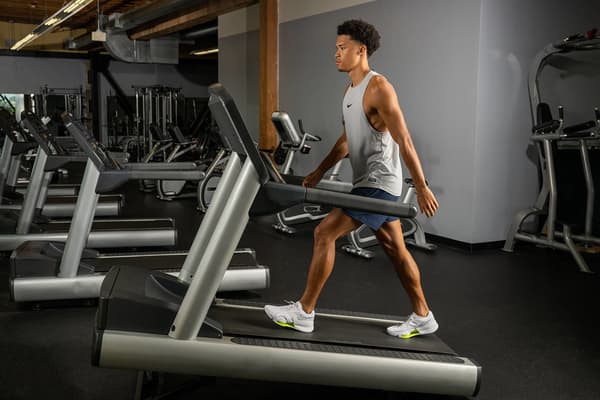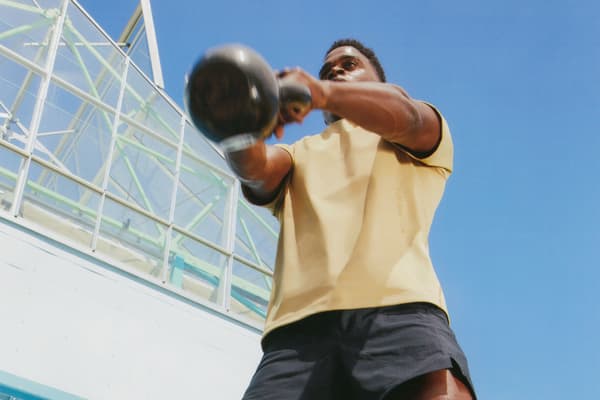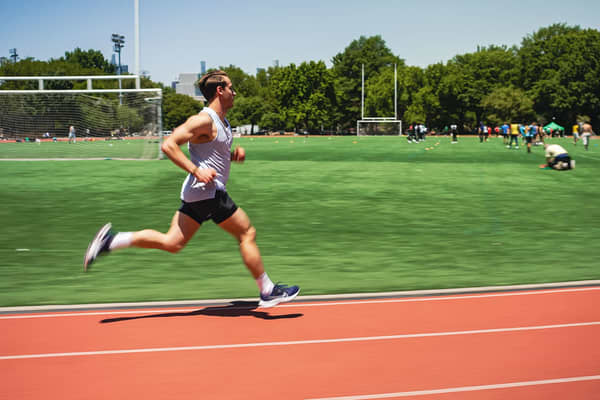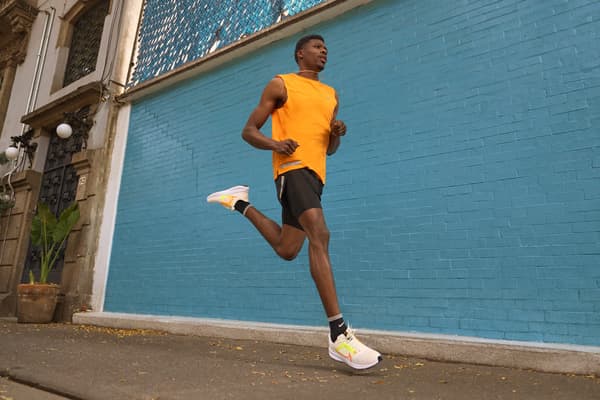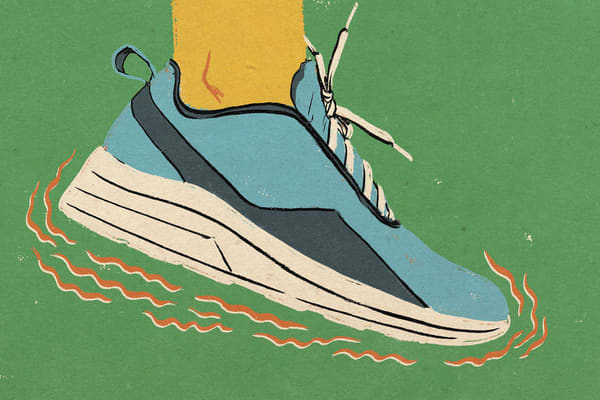What is overtraining syndrome—and how can you avoid it?
Sport & activity
Learn the signs and symptoms of overdoing exercise—and ways to prevent it from happening in the first place.

Picture this: you've been putting in the effort to ramp up the intensity and frequency of your workouts. And yet, it might feel like you're not making progress towards reaching your goals—it may even seem like you're regressing. This is a key indication that you may be overtraining.
Overtraining syndrome can affect any athlete, in any sport, at any level. What does overtraining look like? Symptoms of the condition often include reduced motivation, higher fatigue levels and suppressed immune systems, among others. Still, the effects of too much training without enough recovery time can be easy to miss at first.
For example, you may only notice slight changes in your mood. Or perhaps you note that your sleep cycle hasn't been as rejuvenating as usual. These negative changes can pile up over time and become more prevalent, according to professional cycling coach Garret Seacat, CSCS.
"When you challenge your body beyond its usual capacity, that can be beneficial if done on an occasional and short-term basis, as long as there's adequate recovery to balance that out", he said. "However, when that happens often and over a long period of time, it can take months to come back from those issues. That's why identifying overtraining is so important, so you can adjust if you see any signs".
(Related: Experts say this is the top recovery drink to have after a workout)

What is overreaching and overtraining syndrome?
When you consistently engage in tough workouts or train at an increased intensity, without incorporating recovery and rest days to allow your body to reset before exercising again, your body will often enter a state of overreaching.
Overreaching describes muscle soreness that goes above and beyond what you may typically experience, and it frequently occurs after several consecutive days of hard training. This is when you'll start to feel run-down and unmotivated. Fortunately, the effects of overreaching can usually be reversed quickly with rest and recovery.
Think of overreaching as an alarm—it's a warning that if you continue to ignore it and keep training at the same level, you'll have a bigger issue at hand. You may enter overtraining mode if you consistently ignore this alarm, Seacat explained.
"Full recovery from overtraining can sometimes require weeks, if not months, of avoiding training completely", he said. In fact, research published in a 2020 issue of Redox Biology suggests that muscles need more time to regain the strength and function lost due to overtraining, resulting in extensive recovery periods. Not to mention, it takes time for inflammation levels in the body, which can become elevated due to lack of recovery, to return to normal levels.

What are the symptoms of overtraining syndrome?
"Following a tough workout, it's standard to experience muscle soreness or fatigue, so it can be tricky to know when you're tipping from overreaching into overtraining", Seacat said. However, there are some common signs of overtraining to bear in mind:
- The feeling of heaviness in your legs. This may occur even at lower exercise intensity levels.
- Muscle soreness. This isn't common muscle soreness. This level of soreness can be so discomforting that it limits mobility and persists in future workouts.
- Poor sleep quality that worsens. This may include the onset of insomnia and frequent sleep disruption.
- A lower immune function. Studies have indicated that arduous and repeated bouts of exercise may temporarily hinder immune function. This can show up as easily catching colds, for instance.
- An increased resting heart rate and higher blood pressure. Research indicates that overtraining can negatively affect your nervous system.
- A loss of appetite. This may lead to lower caloric consumption, which can make the effects of overtraining even worse. That's because consuming proper nutrition, and fuel in general, can help prevent fatigue by boosting energy levels and promoting recovery.
(Related: 5 ice bath recovery benefits you need to know about)
Overtraining doesn't only negatively affect physical capability. The condition can also take a toll on your brain according to a review in a 2023 issue of Sports Medicine, which looked at the impact overreaching and overtraining had on cognitive function in endurance athletes. In the study, both athletes who were overreaching and overtraining experienced delayed reaction time, decreased attention and had trouble with decision-making and problem-solving.
However, identifying overtraining syndrome isn't always obvious. A 2016 research review in the Open Access Journal of Sports Medicine on overtraining syndrome pointed out that although several bodily systems are affected by this condition, there isn't a direct way to test for it. A 2013 consensus statement by the American College of Sports Medicine and the European College of Sport Science suggested that the diagnosis for overtraining syndrome is quite complicated.
The joint statement noted that when athletes present with symptoms such as reduced sleep quality, significant signs of fatigue, performance decline and mood disturbances, a doctor makes a diagnosis by ruling out other possible diseases and conditions.
"The difficulty in diagnosing is why it's crucial for athletes to recognise the signs and symptoms themselves, especially since it's possible to prevent overtraining syndrome by dialling back on training during the overreaching phase", Lindsey Wyatt, DPT, said.
"Seeing signs like sleep disruption, a lack of motivation, a higher sense of stress and a lower overall fitness level can be essential [to a diagnosis]", she said. "This is your body telling you that something needs to change".

How to prevent and manage overtraining syndrome
Because overtraining syndrome is mainly due to an imbalance in training and recovery, tracking your training volume and frequency could be useful to identify any trends related to overdoing it. You can also use apps like Nike Run Club to review how many runs or workouts you're stacking up month after month, day after day.
Working with a coach, a certified personal trainer or a strength and conditioning coach may help lay the foundation for your workout and recovery programming. A coach can evaluate your training load and workouts, your current fitness level and any relevant health conditions or injury history, apply standard periodisation methodology to your programme and evaluate how you respond to the programme to avoid overreaching or overtraining.
If you find yourself overreaching often, Seacat suggested reviewing your training plan from the past several months to identify when any issues surface. Most of all, proactively build in rest days instead of taking recovery only when it's convenient, he added.
"Consider recovery time as an essential part of your training and performance", he said. "That might require a mind shift, but it's worth it to prevent the kind of physical and mental issues that come with overtraining".
Words by Elizabeth Millard, ACE CPT.

